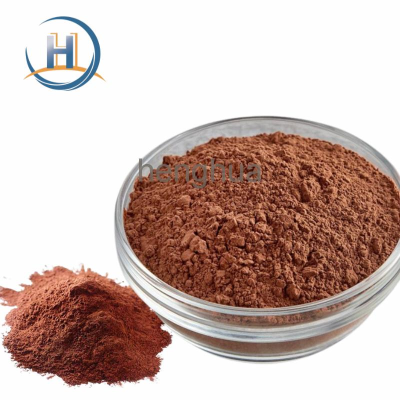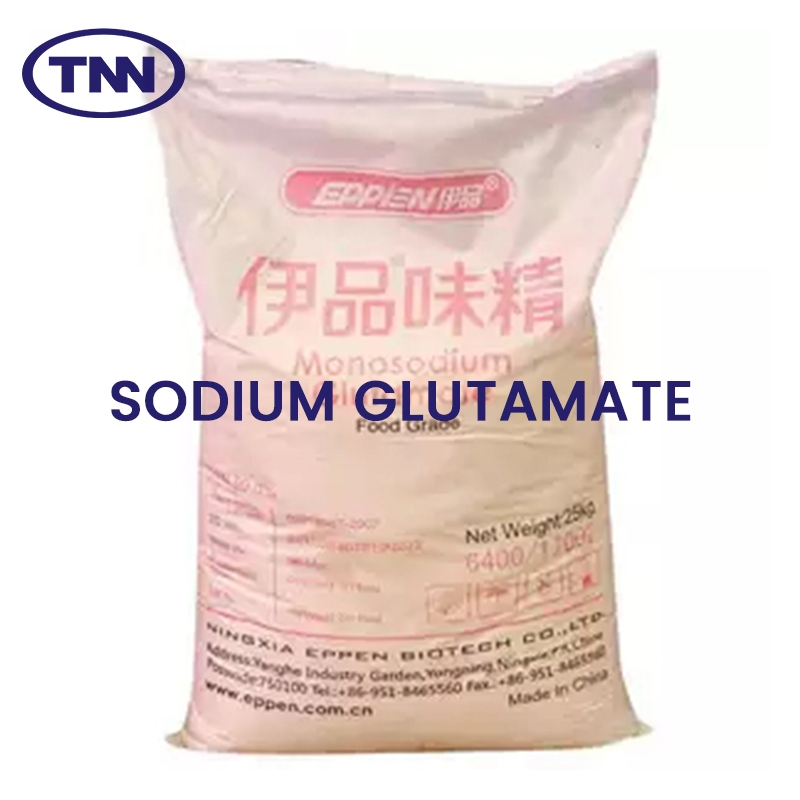-
Categories
-
Pharmaceutical Intermediates
-
Active Pharmaceutical Ingredients
-
Food Additives
- Industrial Coatings
- Agrochemicals
- Dyes and Pigments
- Surfactant
- Flavors and Fragrances
- Chemical Reagents
- Catalyst and Auxiliary
- Natural Products
- Inorganic Chemistry
-
Organic Chemistry
-
Biochemical Engineering
- Analytical Chemistry
-
Cosmetic Ingredient
- Water Treatment Chemical
-
Pharmaceutical Intermediates
Promotion
ECHEMI Mall
Wholesale
Weekly Price
Exhibition
News
-
Trade Service
Food Partners Network News June 24, Sichuan Provincial Market Supervision Bureau informed that the recent organization of food safety supervision sampling, extraction of food and beverage food, edible agricultural products, meat products, fruit products, food processing products, condiments, soy products, fried food and nut products, egg products, sugar Samples of 657 batches of 18 categories of food products, such as salt, pastries, starch and starch products, were found to be unqualified in 11 batches of 6 categories of food, including food and beverage food, edible agricultural products, meat products, fruit products, pastries, starch and starch products.
the main problems found in the drug are the detection of veterinary drug residues exceeding the standard, the excessive use of food additives, microbial contamination, quality indicators are not up to standard.
4 batches of samples detected veterinary drug residue exceeding the standard of non-conforming samples, 4 batches of samples detected veterinary drug residue exceeding the standard problem.
, the "Dobao fish" sold by the "Su Crab Family" at the Shaxi Agricultural and By-products Wholesale Market in Yandu District detected that Enosa Star did not meet the national standards for food safety.
Ennoxacin belongs to fluoroquinoquinosterone, is a class of synthetic broad-spectrum antimicrobial drugs, because of the broad antibacterial spectrum, strong antibacterial activity, etc. are widely used in livestock, poultry, aquatic and other bacterial diseases treatment and prevention.
"Food Safety National Maximum Residual Limit for Veterinary Medicines in Food" (GB 31650-2019), Enosa star in fish (skin and meat) limit of ≤100 μg/kg.
long-term intake of Enosa star food, may cause mild gastrointestinal irritation or discomfort, headache, dizziness, poor sleep and other symptoms, excessive intake may also cause liver damage.
Also, Jinjiang District, Xiaodu cold fresh shop sales, from Chengdu, Sichuan Province, Longquan District, Xihe Town, three-way poultry market, "Uji" detected sodium PCP (in PCP) does not meet the national food safety standards.
and its sodium salts are both highly effective antibacterial agents and wood preservatives, as well as good pesticides and herbicides.
the List of Medicines and Other Compounds Prohibited in Food Animals (Ministry of Agriculture and Rural Affairs Proclamation No. 250) stipulates that sodium PCP is prohibited in food animals.
In addition, Jinjiang District Xinxing after the whole aquatic products business department sales, from the Chengdu Agricultural Products Center wholesale market (Xiong Jiarong) "black fish" detected peacock stone green and oxyfluorosa star does not meet the national food safety standards.
Peacockite is a synthetic N-methyl triphenyl methane industrial dye, and the List of Medicines and Other Compounds Prohibited in Food Animals (Ministry of Agriculture and Rural Affairs Proclamation No. 250) stipulates that Peacockite Green is prohibited in food animals.
peacock green in the fish body and environment are relatively long residual time, and enter the human body after its metabolites have potential teratogenic, mutation and other hazards.
long-term consumption of food detected peacock stone green, may have some impact on human health.
is a fluoroquinoquinoquinone drug, which has been widely used in the prevention and treatment of bacterial diseases in livestock and poultry because of its wide antibacterial spectrum and strong antibacterial activity.
The Decision to Discontinue the Use of Lomosa, Perfluorosa, Oxyfluorosa and Nofluorosa in Food Animals (Ministry of Agriculture Proclamation No. 2292) provides for the discontinuation of the use of Oxyfluorosas in food animals.
5 batches of samples detected food additives over-limit use of non-conforming samples, 5 batches of samples detected food additives over-limit use problems.
Among them, 4 batches of samples detected aluminum residue (dry samples, to Al meter) do not meet the national standards for food safety, respectively: Suining City Development Zone Yuyu second sister snack bar sales of "oil bars", Ya'an City Yucheng Chinchen breakfast shop sales of "oil bars (fried noodles)," Dechang County small fat brother breakfast shop sales of "oil bars (homemade)," self-flowing area Chenge restaurant sales of "oil bars."
potassium sulfate (a.g. potassium alum), ammonium sulfate (also known as ammonium alum) is a commonly used puffing agent and stabilizer in food processing, aluminum residues are produced after use.
"National Standard for Food Safety Food Additives" (GB 2760-2014), the maximum residual limit of aluminum in fried noodle products is ≤100mg/kg.
In addition, there is also a batch for: Yandu District, small yu fried goods sales, the label Yuanmou Golden Peacock Food Co. , Ltd. produced "small tomato fruit", the sample detected sulfur dioxide residue does not meet the national standards for food safety. Sulfur dioxide residues in
foods are usually referred to as sulfur dioxide, sulfur, and inorganic sulphate residues such as sodium caramelate, potassium sulphate, sodium sulphate, sodium sulphate, and sodium hyposulphate.
"National Standard for Food Safety Food Additives" (GB 2760-2014) stipulates that the residual amount of sulfur dioxide in honeydew fruit should be ≤0.35g/kg.
2 batches of samples detected microbial contamination problems of non-conforming samples, 2 batches of samples detected microbial contamination problems.
among them, Renshou County Fuga Town Yiyuan supermarket sales, the label Meishan City, Dongpo District Lihong Food Factory production of "green bean cake" detected that the E. coli group does not meet the national standards for food safety.
coli colony is one of the commonly used indicator bacteria of food pollution at home and abroad, and the detection of colium bacteria in food indicates that it is more likely to be contaminated by pathogenic bacteria.
"National Standard for Food Safety Pastries and Breads" (GB 7099-2015) stipulates that the E. coli index values are: n-5, c-2, m-10, M-100CFU/g (except for products available for sale and products containing uncooked fermented ingredients or fresh fruits and vegetables).
In addition, Chongzhou City Sanjiang Town Jianjun Century Hualian franchise store sales, the label Mianyang Yiling E-Commerce Co. , Ltd. production of "red dates starch" detected the total number of bacteria, mold and yeast does not meet the national standards for food safety.
1 batch of meat products detected quality indicators do not meet the standards of non-conforming samples, there is a batch of meat products detected quality indicators of substandard problems, for: double-streaming area Xinghong supermarket sales of "pig ribs" detected peroxide value (in fat) does not meet the national standards for food safety.
peroxide is an indicator of the degree of oxidation of fats and fatty acids.
"National Standard for Food Safety Pickled Meat Products" (GB 2730-2015) stipulates that the peroxide value of bacon ≤0.5g/100g.
the non-conformity of the peroxide value in the bacon may be the need to dry or dry in the production process, the production cycle is longer, fat oxidation in the production process, resulting in higher peroxide value of the product.
the fat in the raw material has been oxidized, the raw material is not stored properly, and no effective antioxidant measures have been taken to make the oil oxidation in the final product go bad.
For non-conforming food found in the sampling, the Sichuan Provincial Market Supervision Administration has tasked Chengdu, Zigong City, Mianyang City, Suining City, Ya'an City, Meishan City, Liangshan State Market Supervision Administration to immediately organize verification and disposal, urge food production enterprises to find out the flow of products, take off-shelf recall of unqualified products and other measures to control risks;
Sichuan Provincial Market Supervision Bureau on the 11 batches of food non-conformity notice (No. 25 of 2020) non-conforming sample information (Source: Sichuan Provincial Market Supervision Administration) non-conforming - 2020 No. 25 food sampling Information related reports: Sichuan Provincial Market Supervision Bureau on the 11 batches of food non-conformity notice (No. 25 of 2020) this article by the Food Partners Network Food Information Center editing, for the reference of netizens, welcome to reproduce, reprint please indicate the source! If you have any questions, news@foodmate.net.







